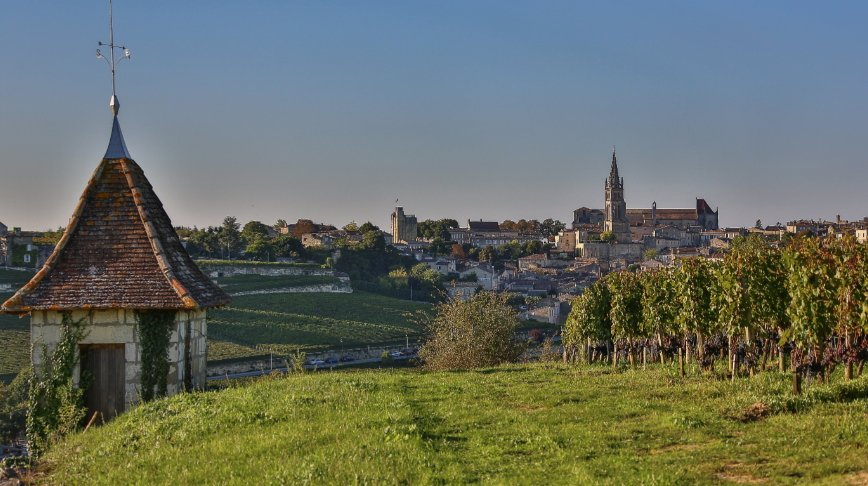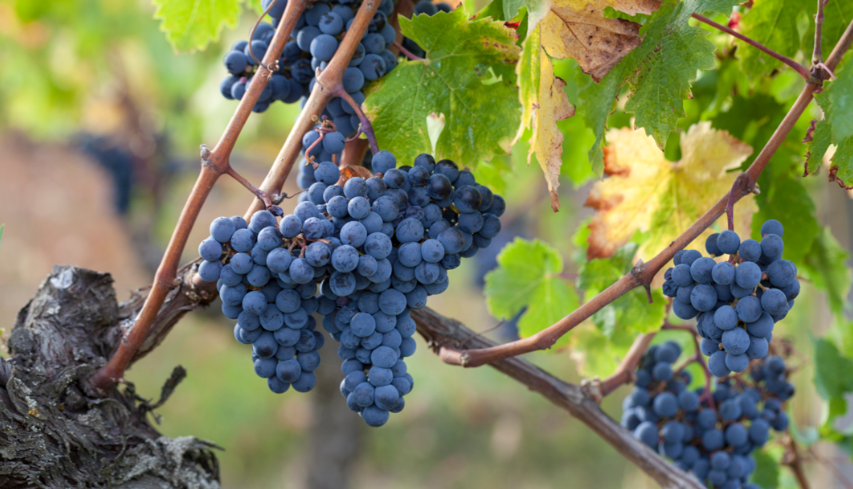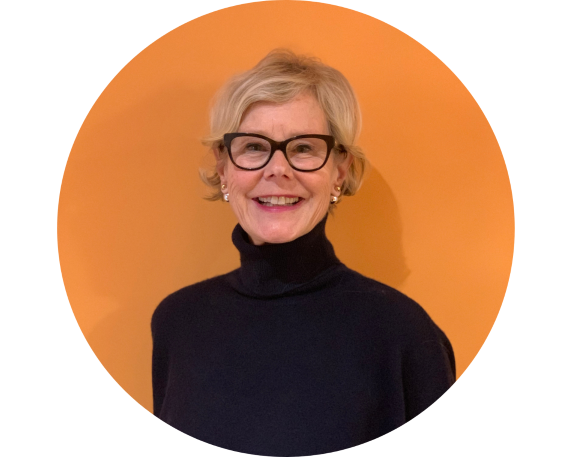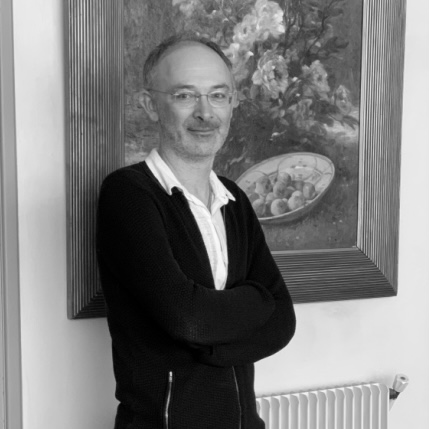Colin Hay
Wine correspondent “The Drinks Business”
Met by Gerda
Colin Hay is The Drinks Business’ Bordeaux Correspondent and Professor of Political Science at Sciences Po in Paris, where he works on the political economy of Europe, la place de Bordeaux and wine markets more generally. He is a particular admirer of the wines of Bordeaux, Burgundy, the Rhône Valley, Piedmont and Tuscany.
Gerda: Tell us about you..
Colin Hay: I am a Social Scientist, Professor at Sciences Po in Paris and Wine Writer for The Drink Business. I hope that I am a kind and generous person and I hope that this is reflected in my writing. I do not see myself as a critic; I am more of a commentator and a correspondent. My task is to understand and to share with my readers that understanding. For that one needs a certain humility and the desire to listen, not just strong convictions and the courage that comes with them. I am also an academic and that undoubtedly influences my approach. The wines and the people who have made them are my source of information. I try to talk to owners, winemakers, and consultants as much as I can so as better to understand their wines. I hope that they can recognize the wines they have made in my descriptions of them; I would have failed in my task if that were not the case. That is certainly a different kind of relationship with the producer than that of the traditional wine critic. For instance, blind tastings don’t interest me much (certainly for young wines, such as en primeur samples) because they reduce the information, it has to make sense of a wine. Tasting young wines is challenging and we need all the information we can possibly have to make the best sense of how they are likely to evolve and their underlying quality.
Gerda: You are also Professor at Sciences Po Paris, but did you choose to become a wine writer?
Colin Hay: I came to live in France in 2012 but my first articles for Decanter were much earlier – in 2006/2007. They were rather more academic. They were about the role of systems of classification and wine critics such as Parker in the shaping of prices and price trajectories. They challenged some of the conventional orthodoxies, especially about Parker’s influence. Above all, they led to conversations with Châteaux, négociants and courtiers and also with the London trade. And that, in turn, led to invitations, not least to my first en primeur tastings in and around Bordeaux in 2013. 2013 was, of course, a very challenging vintage – but one from which I learned a great deal about en primeur itself and about the choices that different Châteaux had made. That was the same approach that I brought to my 2021 tastings. What were the challenges? What were the choices made in response to those challenges? And, ultimately, what worked and what did not?
Gerda: Why do you have a passion for Bordeaux?
Colin Hay: Like many of the best things in life, there was an element of chance to this. As a student at Cambridge, I didn’t have much to spend on a bottle of wine. I rapidly learned that I could invest my £5 well or badly, but I was more likely to have invested it well if I were purchasing Bordeaux. And the more I learned about Bordeaux the better the return on my investment! I became enthused and even started to buy en primeur, becoming more and more interested in how that worked – and, if slowly at first, more knowledgeable. The rest, as they say, is history.

About the job
Gerda: How would you describe the role of a wine correspondent?
Colin Hay: I have the privilege to taste fabulous wines, to visit the estates wine lovers would choose to visit had they the chance, and the opportunity to talk to the people whose job it is to make some of the best wines in the world. I aim to use that opportunity the best I can, to learn from it and to report it back to my readers through the articles I write.
G: Are you able to give an objective mark to wines?
Colin Hay: In short, no; but I am not alone in that! First and foremost, I aim to describe the wine that I taste in my tasting notes: someone who is thinking of buying this wine should able to inform herself through my tasting note. My preferences, though important, come second and need to be clearly signalled to the reader and transparent as preferences. In effect, I need to be able to say, “whilst this it is not my cup of tea, if you like wines like this [and here’s my description] then this might well be for you”.
So, no, I am not able to give an objective mark to the wine and, crucially, I am not seeking or claiming to do so. That is in part because I believe that all questions of taste are necessarily subjective; there is no objectivity in questions of taste. There may well be (and often are) powerful conventions (that this is good and that is bad), but they remain conventions – and, as such subjective.
Second, I am not a trained and certified taster and I am sure that I taste in a way that is different from those who are. Trained tasters taste forensically, typically by dissecting a wine into its components (acidity, alcohol and so forth). I taste primarily through association. In my head the conversation goes something like this: “hmm, this feels like it comes from Pauillac, probably from close to river, in that it reminds me of something I first discovered in Chateau X, and it might well come from Pauillac because there’s clearly quite a lot of Cabernet, etc. etc.”.
The critic with the more trained palate is much better placed than me to identify the wine based on its physical (objective) attributes (the level of acidity, the level of alcohol, the tannic density). And such a taster may well be better able to fashion a guess as to what the wine is than I am (though tasting through association works surprisingly well too). But, impressive though it is to be able to gauge accurately the level of acidity or the proportion of Cabernet Sauvignon in a wine, neither helps us to assess whether the wine is good or not. That will always remain a subjective judgment (even when we all agree).
G: How critical should wine criticism be?
Colin Hay: Critics need to be critical; and they need a certain distance from the object of criticism in order to be critical. But as I have said already, I am at least as much a commentator as I am a critic and I suspect most readers are more interested in my commentary than my criticism per se. I want to understand more than I want to criticize. So even when I find a wine problematic, I want to understand why I find it problematic more than I want to identify and challenge the failings of the wine-maker.
Indeed, this is a particularly interesting question in the context of the Bordeaux 2021 vintage. From my perspective, in a situation of extraordinary meteorological adversity, the wine growers and wine makers of Bordeaux did spectacularly well; and we need to be saying that. They really did a great job! My understanding of the difficulties they faced leads me to empathise with them; it does not incline me to criticize them, even (and perhaps above all) when the wine is not fabulous in comparative terms.
But I still have a clear responsibility to assess, as honestly as I can, the quality of the wine – and if it’s not great I need to say so. What in fact irritates me most are those critics (and there are a number in 2021) who give very low scores to wines they typically score more highly with absolutely no indication as to what they find problematic. The commentary reads ’92’, the score reads ‘88’. That, for me, shows a certain lack of respect that I find troubling.
I have a responsibility to the consumer to say whether I find the wine good or bad; but I also have a responsibility to the producer – as well to the consumer – to explain that judgment. If the potential consumer accepts my judgment that the wine is poor she might nonetheless still empathise with the producer whose best parcels were ravaged by frost, hail and/or mildew.
G: Are you different from the other wine critics?
Colin Hay: Yes, in at least 3 respects:
As I have tried to explain already, I do not strive for the holy grail of objectivity, quite simply because I don’t think that it exists. I am happy to embrace and even to share my emotional reaction to wine, not least because I am happy to accept that the ultimate judgment of the quality of a wine is, and can only ever be, subjective. That influences how it goes about tasting. Those critics who are seeking neutrality and objectivity tend to be much more distant from the properties themselves. They rely (as they have to rely) more on their own palate. I understand and I respect that, just as I understand and respect them. But it is not the way I operate as I do not have the same confidence in my own palate (or any other palate) as they have in theirs! As an academic, I am also simply less satisfied with the idea that the quality of a wine can be gauged objectively. The rest follows from that. I can be and I need to be closer to the estate for that is my principal source of information.
That information flow in fact goes both ways. During the Covid period, I had long conversations on Zoom with many Bordeaux producers who had been kind enough to send me en primeur samples. Those conversations weren’t just about their own wines, but about those of their peers and their neighbours – which, in most cases, they hadn’t tasted. I learned much from those conversations, but so did they. They wanted to know what the vintage was like through the eyes and the palate of someone it seemed they respected who had tasted more broadly than them. I felt privileged to be in that situation and privileged to be in those conversations.
I do not make my living as a wine correspondent. I have a day job as a Professor at Sciences Po in Paris. That undoubtedly changes things and probably make things easier. Above all, it makes it easier for me to be independent and perhaps also to be seen to be independent. I have the privilege in a sense of not being financially dependent on any of this.
In sum, I am not a critic in the conventional sense, but neither am I a critic of the critics. We just do things differently!

About the product
Gerda: What do you think about biodynamic wines?
Colin Hay: In general terms, I am a fan! Biodynamic wines are invariably wines made by winemakers who want to do the right thing, both for the environment and for the terroir their wine-making is seeking to express. That’s already a good start. It is not difficult to admire what they are seeking to achieve. They are passionate and I share that passion. Moreover, in my experience they tend to succeed. Biodynamic wines, particularly today, tend to be excellent. They are, for instance, very good in the 2021 vintage. Whether it’s Durfort Vivens, Ferrière, Croix de Labrie or Fonplégade these wines are lively and energetic, with fruit that is invariably more brilliant, brighter, and more vibrant.
That said, biodynamic wine-making reinforces and accentuates a certain style – a style that I like but that others may like less (taste, after all, is subjective). So, for me, biodynamic wine-making is a really good move, but if finesse, purity and linearity are not what you are looking for, then you might have a rather different view.
G: Can you describe to me what makes a wine exceptional?
Colin Hay: An exceptional wine should taste like the place where it actually comes from. But it should speak to us not only about the place but reveal also something of the winemaker’s philosophy. An exceptional wine is a wine that excites me and a truly exceptional wine invariably generates an emotional response. Indeed, I typically know that I am in the presence of near perfection in wine when my emotional reaction produces a physical response: goose pimples, even a tear in the corner of my eye. Yes, that does happen, and I can still remember each and every time that it has happened. The most recent was during this en primeur campaign, the wine Chateau de Fargues!
G: How would you describe your personal taste?
Colin Hay: This is a tricky question … I think of my taste as continental European and French, perhaps increasingly so … In the past one would probably have described it as British too. But I wonder today whether there is not in fact a certain divergence between the French and the British palates. This is certainly not an effect of Brexit (!), but there does seem to me to be a greater residual influence of Parker’s taste on the Anglophone palate (even the British one). One sees it a little in the rather different ratings of British and continental European critics of the 2021 vintage. These wines, it seems, lack a certain puissance for the contemporary British palate (even more so of course, for its North American counterpart).
In my experience, continental European and, above all, French palates are happier to embrace as excellent wines with finesse, elegance and, crucially, less puissance and extraction – more terroir-driven wines. And that conforms very closely with the stylistic direction of travel in Bordeaux since around 2015.
2021 as a vintage reinforces this trend. I taste terroir. The wines of Margaux, for instance, are more Margellais than ever – I love that.
G: Can you speak about an unforgettable tasting?
Colin Hay: I have been lucky enough to have many memorable tastings. It is difficult to single out a particular one. But if I had to do so, I would probably pick a recent vertical with Berenice Lurton of Climens going all the way back to the 1970s. I do so not just because the wines were brilliant, phenomenally consistent and incredibly glacial in their evolution (evolving, it seems, in bottle almost as slowly as Yquem itself). I also pick it out of empathy for a property that I love that has suffered much in recent vintages, above all with terrible frost damage (there is, alas, no 2021). There have been, however, plenty of other highlights – a spectacular 25 years vertical of La Conseillante, wonderful vertical tastings at Haut Bailly, Brane Cantenac, Beychevelle, La Lagune and Hermitage La Chapelle and, most recently, de Fargues. Once again, I feel very privileged.
G: Are you working on something specific at this moment?
Colin Hay: I have just finished around 150 pages of analysis and tasting notes on the 2021 vintage. So I am now returning to a number of other smaller projects: a little series of articles about the monocépage wines of Bordeaux (there are many); a similar series on the climatization of the left and right bank that seeks to highlight some lesser-known micro-cuvées; as well articles on the new hors Bordeaux releases on la place, and the writing up of recent vertical tastings at La Lagune and Hermitage La Chapelle and de Fargues. I’m also in the midst of re-tasting the 2018s. And then, of course, there is the Saint Emilion Classification. There is always something to write on that, not least as I am a firm believer in the principle of competitive classification.
G: What are the new advertising tools in your job?
Colin Hay: Quite honestly, I am not very good at social media. I feel much more comfortable with conversations like this (face to face around a cup of coffee). I don’t have my own website because I simply wouldn’t know how to manage it and I suspect it would become all-consuming. I am very comfortable with what I am doing for The Drinks Business, above all because they seem to value my independence. They encourage me to write what I want to write. Most importantly, all of my writing is freely available to anyone who wants to read it online
G: Could you give me a few words to describe the 2021 vintage?
Colin Hay: It is, for me, the expression of a new classicism in Bordeaux. ‘New’, because wines of this quality could simply not have been produced in a vintage this difficult in the past. But ‘classical’ too, in the way they taste. These are wines that taste of their terroir. They are pure, precise and aromatically expressive with a sapid natural freshness. Like the winemakers themselves it seems, I particularly like my fruit to be croquant (crunchy); that it what one finds, above all, in the fabulous cool summer Cabernet of this vintage. My fear is that, given accelerating climate change, this very natural sense of locked-in freshness will be very difficult to find – perhaps even a distant memory – in 20 years’ time. We should savour it while we can!

Gerda BEZIADE has an incredible passion for wine and perfect knowledge of Bordeaux acquired within prestigious wine merchants for 25 years. Gerda joins Roland Coiffe & Associés in order to bring you, through “Inside La PLACE“, more information about the estates we sell.

